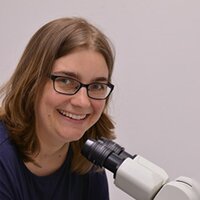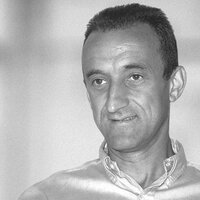Advanta RNA-Seq XT NGS Library Prep Kits
Transform your RNA sequencing productivity with nanoscale automation
RNA sequencing (RNA-seq) is the standard for hypothesis-free profiling of the transcriptome and an essential tool for molecular biology laboratories. Designed to drive significant improvement in the RNA-seq workflow, the Advanta™ RNA-Seq NGS Library Prep Kit together with the Juno™ system provides an integrated solution for automated, cost-efficient NGS library prep.

We have developed an elegant microfluidics-based platform for automated RNA-seq library preparation. Leveraging the Juno system and the 48.Atlas™ integrated fluidic circuit (IFC), the workflow supports the simultaneous processing of up to 48 total RNA samples with a one-click script on the instrument. With the launch of the Advanta RNA-Seq XT Library Prep Kits we have updated the products to include unique dual index (UDI) adapters, ideal for use on NovaSeq platforms, as well as simplified the reagent usage for additional savings on hands-on time and labor costs.
The Advanta RNA-Seq XT Kits contain sufficient 48.Atlas IFCs (four per kit), reagents, control line fluid and UDI adapters to generate libraries from 192 total RNA samples, and include either four sets of 1–48 UDI barcodes (PN 101-9950) or two sets of 1–48 UDI barcodes and two sets of 49–96 UDI barcodes (PN 101-9959).
The Advanta RNA-Seq XT NGS Library Prep Kits and Juno system advantage

Figure 1. Advanta RNA-Seq NGS XT Library Prep Kit workflow on the Juno system. Samples and Advanta RNA-Seq XT reagents are added to the 48.Atlas IFC, which is subsequently processed on the Juno instrument.
The system solution automates many tedious, hands-on steps to generate full-length stranded libraries from random priming of polyadenylated [poly(A)] RNA present in total RNA samples. The Advanta RNA-Seq XT Kit and Juno workflow improve upon alternative RNA-seq library prep workflows by providing true walkaway automation while reducing reagent, consumables, labor and instrument costs.
WORKFLOW
Advanta RNA-Seq XT workflow, 48.Atlas IFC and the Juno platform enable significant efficiencies
The Advanta RNA-Seq XT Kits include library preparation reagents, UDI adapters and the 48.Atlas IFC, a microfluidic device approximately the same size and shape as a standard 96-well plate. Sample and reagent mixes are dispensed into the IFC, which is then placed in the Juno system for automated processing of most of the workflow steps. Because processing on the Juno platform requires no manual intervention and no pipetting, the solution greatly reduces hands-on time as well as consumable cost and plastic waste.

Figure 2. The 48.Atlas IFC architecture automates multiple workflow steps otherwise performed manually, including poly(A) RNA capture, RNA fragmentation, reverse-transcription, sample-barcode PCR and multiple wash steps.
WORKFLOW COMPARISON

Figure 3. Example comparing hands-on time and number of manual processing steps for several RNA-seq workflows. Comparisons were made between the Advanta RNA-Seq XT NGS Library Prep Kit, TruSeq Stranded mRNA LP, NEBNext Ultra II Directional RNA LP and KAPA mRNA HyperPrep LP. All workflows include quantification of 48 samples by qPCR and pooling to obtain the final library for sequencing. The Advanta RNA-Seq XT workflow using the 48.Atlas IFC with Juno system automation enables substantial hands-on time savings relative to the alternative library prep workflows.
PERFORMANCE
Summary of performance results generated from analytical validation testing.

Table 1. Performance characteristics of the Advanta RNA-Seq XT Kit on the Juno system were assessed in an analytical validation study. Total RNA samples were Universal Human Reference RNA (UHRR, Agilent) and human adult brain RNA (Brain, BioChain). The results demonstrate high mapping statistics with a low-percentage reads mapping to rRNA sequences for both RNA types and input amounts of either 10 ng or 100 ng.
Learn more: Download the Advanta RNA-Seq XT NGS Library Prep Kit Application Note.
Customer Stories
Learn more about how our customers are leveraging Standard BioTools™ technology
Dr. Dexi Chen, PhD, MD

Achieving multi-omic insights with microfluidics and CyTOF technology
Scott Magness, PhD

Investigating transcriptomic changes at the microscale level
Jo Vandesompele, PhD

Jo Vandesompele at Ghent University discusses a deep dive into single-cell sequencing
Christophe Lancrin, PhD

Christophe Lancrin on revealing new transcription factors using C1 and Biomark
Ansuman Satpathy, MD, PhD

Stanford’s Ansu Satpathy designed single-cell T-ATAC-seq, now available at Script Hub
Shyam Prabhakar, PhD

Shyam Prabhakar explores signatures of patient survival and EMT in colorectal tumors
Simone Mayer, PhD

Simone Mayer, PhD, explains how using multimodal analysis helped reveal new insights
Kelly Nudelman, PhD

Kelly Nudelman and Tae-Hwi Schwantes-An discuss sample identification
Shyam Prabhakar, PhD

Analysis of Single-Cell Transcriptomes in Colorectal Cancer by Shyam Prabhakar
Leisha McGrath, PhD student

A microfluidics-based gene expression assay to monitor fish health
Nicole Bakkegård Goecke, PhD

Nicole Bakkegård Goecke, PhD, discusses detecting and preventing disease in animals
Jonathan M. Irish, PhD

Combinatorial, single-cell approaches to explore the complexity of biologic systems
Dr. Luc Teyton, MD, PhD

How one lab explores the immune system one T cell at a time
Scientist Michael Stubbington, PhD

A new single-cell sequencing tool brings fresh insight to functional T cell studies
For Research Use Only. Not for use in diagnostic procedures. Patent and License Information: www.standardbio.com/legal/notices. Trademarks: www.standardbio.com/legal/trademarks. Any other trademarks are the sole property of their respective owners. ©2025 Standard BioTools Inc. All rights reserved.
